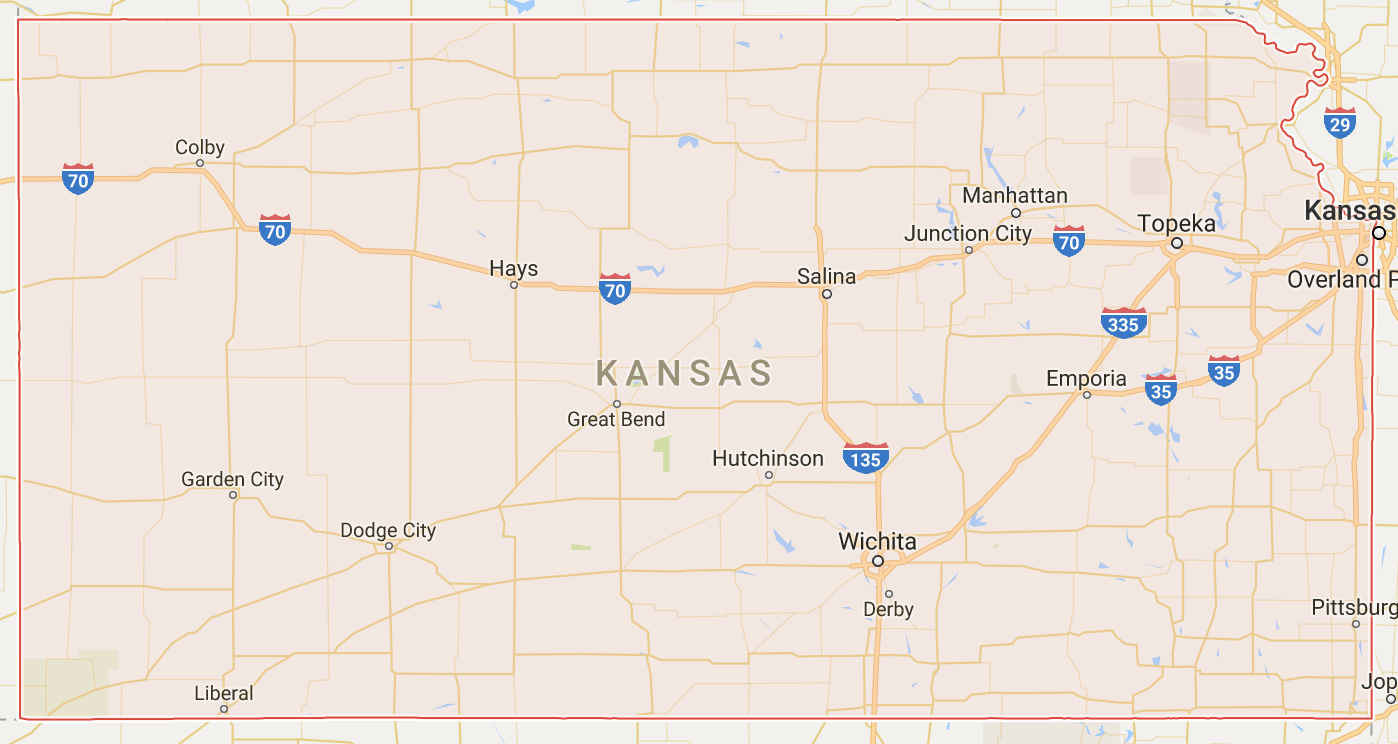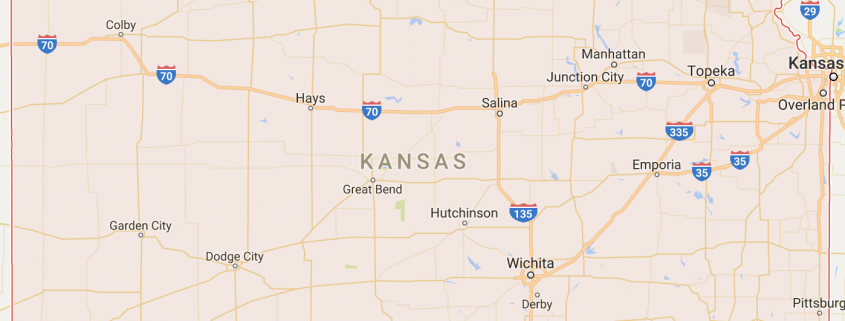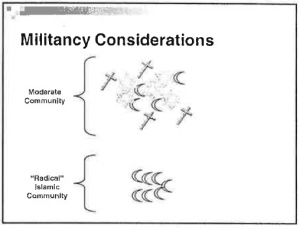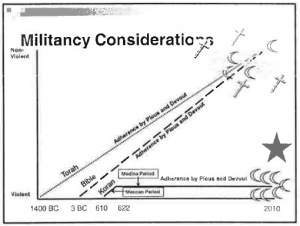Over at Salon, I’ve got a piece addressing the things we call terror in this country that mostly argues, “In the wake of the Planned Parenthood attack, both the right and the left should redouble our commitment to distinguishing speech from murder.” But I also start by laying out how various mass killings get labeled as terrorism.
Commentary on the deadly mass shootings over the past week — last Friday’s at a Planned Parenthood in Colorado, and yesterday’s in San Bernardino, Calif. — has thus far has focused on whether the attacks were terroristic in nature.
Such a designation would suggest violence in support of political ends but also to a set of potential criminal charges. In both cases, there were at least initial reports the perpetrators tried to set off an explosive device, in Planned Parenthood shooter’s case a propane tank (though since initial reports, police have said nothing about whether this was his intent), in the alleged San Bernardino attackers’ case, several pipe bombs. If authorities do confirm these were bombs, both cases might be treated legally as domestic terrorism. Because of an asymmetry in our laws on terrorism and our collection of online communications, if the San Bernardino shooters can be shown to have been inspired by a foreign terrorist organization, like ISIS — as now appears to be the case — their attack would be treated as terrorism even without a bomb.
At Lawfare, former NSA attorney Susan Hennessey has a piece outlining at length much the same thing. If you want a detailed legal treatment of what I summarized in that Salon paragraph, written by an actual lawyer, hers is a decent piece to read.
But her piece is far more interesting as an artifact of a certain type of thinking, complete with some really important blind spots about how the law actually gets implemented. Those blind spots let Hennessey claim, falsely, that the different treatment of international and domestic terrorism does not result in disparate treatment for Muslims.
Hennessey lays out the law behind terrorism charges and argues (and I agree) that the distinction is mostly investigative.
The most consequential citation to the § 2331(5) domestic terrorism definition is in the Attorney General Guidelines for Domestic FBI Operations which authorizes the FBI to conduct “enterprise investigations” for the purpose of establishing the factual basis that reasonably indicates a group has or intends to commit an act of “domestic terrorism as defined in 18 U.S.C. § 2331(5) involving a violation of federal criminal law”:
[snip]
As a consequence, labeling an act one of “domestic terrorism” is most important in the context of investigations, and not ultimately indictments.
She claims it’s okay to treat domestic “ideologically-motivated mass shootings” (which is a great term) as murder because states have the capacity to investigate them.
We don’t want to have a general federal murder statute, and the states are perfectly capable of prosecuting murders of American citizens within their borders, even those that are motivated by politics.
[snip]
States have no lack of capacity to investigate shootings, no lack of authorities to prosecute them, and mass shooters have tended to be very local in the past.
Of course, interest in investigating is very different from capacity to. And for many forms of right wing terrorism — the targeting of minorities and health clinics — there has been local disinterest in investigating the networks behind them. That problem has been addressed in both cases, though not by making these crimes terrorism, but rather by creating “hate crime” and Freedom of Access to Clinic Entrances laws that can give the Feds jurisdiction. But that jurisdiction does not, then, get those crimes that require Federal investigation or prosecution because localities are disinterested treated as terrorism crimes, especially not prospectively. That means the FBI will be bureaucratically less focused on and less rewarded for the investigation of them, and they’ll more often intervene after an attack than before, to prevent it. That bureaucratic focus shows up in Congressional tracking of terrorism cases and White House focus on them, which is another way of saying FBI’s bosses and purse-strings pay closer attention to the stuff that gets charged as terrorism.
Hennessey claims this doesn’t result in any disparate treatment of Muslims. To prove that there is no disparity arising out of the limitation of domestic terrorism mostly to crimes involving bombs, she lays out a list of Muslims who killed using guns that didn’t get charged with terrorism. Here’s just part of her discussion (in the later part, she presumes attackers who died would not have been charged as terrorists).
By and large, violent extremists of all stripes who use bombs are prosecuted as terrorists, while violent extremists of all stripes who use guns get prosecuted as simple murderers. Consider Nidal Hassan, the Fort Hood shooter who professed an agenda of radical Islam, yet was prosecuted by the military for simple murder. Despite overwhelming calls to categorize the act as terrorism, the Pentagon treated it as an act of workplace violence. Shortly before the Fort Hood shooting in 2009, Abdulhakim Mujahid Muhammad killed two soldiers in front of a Little Rock, Arkansas recruiting station. Following the shooting, Muhammad expressed to investigators allegiance to al Qaeda in the Arabian Peninsula. Yet he was prosecuted by the state of Arkansas and ultimately pled guilty to capital murder charges, not terrorism. The most dramatic example may be that of Mir Aimal Kasi who, in 1993, shot two CIA employees dead outside the agency’s entrance in Langley, Virginia. Kasi’s stated motive was anger over the US treatment of people in the Middle East, particularly Palestinians. He fled to Pakistan, and following a four-year international manhunt and joint CIA-FBI capture operation in Pakistan, he was rendered back to the United States. How was he charged? Not with terrorism. Kasi was convicted by the state of Virginia on capital murder charges and executed in 2002.
But, even ignoring how she presumes certain charging decisions had some attackers not died, this is not enough to prove her claim. To prove it, she’d also have to prove that non-Muslims who use bombs in “ideologically-motivated” killings do get charged as terrorists, and that the ability to charge domestic crimes using bombs is not used by FBI to create terrorism prosecutions. With a few notable exceptions, those things aren’t true.
There are a number of cases of right wingers who could have gotten charged with a terrorist WMD charge but didn’t. Most notably, there’s Eric Rudolph — who not only serially bombed abortion clinics but bombed the Atlanta Olympics, then escaped across state lines. He was charged with explosives charges but not given a terrorism enhancement (he is serving multiple life sentences in any case). Indeed, his indictment — signed by current Deputy Attorney General Sally Quillian Yates when she was an AUSA — did not once call the series of bombings and threats Rudolph carried out terrorism, even though bombing the Olympics is a quintessential example of terrorism.
Then there’s another Sally Yates case (this time as US Attorney), the Waffle House plot, in which four geriatric right wingers plotted to use weapons and ricin dropped from a plane to overthrow the federal government. They actually bought what they thought was explosives from the FBI, but did not get charged with terrorism for either the ricin or the presumed explosives.
There’s Schaffer Cox, who got busted for conspiring to kill federal authorities; he talked about using grenades but did not get charged with a WMD count. There’s Benjamin Kuzelka, the guy with Nazi propaganda trying to make TATP. There’s William Krar, the white supremacist caught with massive explosives who eventually pled to one chemical weapons charge, but without exposing what was presumed to be a broader network.
Meanwhile, there are just three cases I know of where non-Muslims did get charged with bomb-related terrorism charges — and to some degree, these exceptions prove the rule (I’m not treating ACTA “animal terrorism” cases, which introduce another order of magnitude of absurdity into the issue).
There is the Spokane MLK bomber Kevin Harpham, whose sophisticated bomb got found before it went off. Harpham’s plea deal retained a terrorism WMD charge, but his sentence was lighter than similarly situated Muslim terrorists.
There is the Hutaree group charged on multiple counts of trying to overthrow the government, including with bombs. The terrorism related charges against the Hutaree were thrown out entirely (in part because they were charged badly), and most of the 9 of them went free.
The only case I know of that is parallel to the way many Muslims get treated is that of the Occupy Cleveland participants whose discussion of vandalism got inflamed — and focused on a target that might merit federal charges — by an informant who also plied them with jobs and other enticements. After pressing buttons they thought would detonate a bomb, they got charged as terrorists. The judge thought the punishments requested by the government “grotesque” and sentenced them much more lightly (though still to upwards from 6 years).
I say the Occupy Cleveland case is parallel because for the overwhelming number of cases charged as Islamic terrorism, the FBI supplies the bomb and often picks the target for a “wayward knucklehead” who then gets charged with terrorism (though judges almost never consider those charges “grotesque”). There were hundreds of them already by 2011. Often, the target would have not had the ability — in terms of money, experience, and other resources — to conduct the “bomb” plot by himself. So when Hennessey justifies charging bomb but not gun crimes as terrorism because “bombers tend to be more organized in interstate groups,” what she really means is that the FBI is an organized interstate group, because that’s the organizing force that provides the expertise in the overwhelming majority of terrorism cases.
Which brings me to the most alarming claim that Hennessey makes, in the midst of an argument that the civil liberties cost of treating domestic terrorism like international terrorism is too high: that what she calls “complex legal obligations” on using “incidental” collection reflects heightened privacy concerns.
The complex legal obligations generated by incidental or intentional focus on US persons reflects the heightened privacy and civil liberties concerns at stake when we use foreign intelligence tools domestically. And rightly so, as the process of investigating and prosecuting domestic terrorists and homegrown violent extremists risks infringing into areas of constitutionally protected speech, religion, and association.
To be fair, she was an NSA lawyer, not an FBI lawyer, which is why I consider this surprising claim a “blind spot.” The NSA does have to treat incidentally US person data carefully; they actually do very few back door searches of incidentally collected data.
But many (if not most) counterterrorism targets collected under Section 702 and all traditional FISA ones get shared directly with the FBI. And the FBI can access and use the incidentally collected data not only for formal investigations, but also for assessments, such as called in tips or even just to find stuff to use to coerce people to turn informant. For incidentally collected US person data that resides in FBI’s databases, in other words, there are no complex legal obligations on incidental collection. None. It just sits there for 30 years at potential risk of contributing to a prosecution. And that’s a big source of the stings the FBI starts, when it throws an informant at some kid downloading Inspire or talking in a chat room to try to take them off the street by inventing a bomb plot.
Update: In her response to this piece, Hennessey makes it clear she believes this passage is wrong–and with respect to whether unreviewed data sits in FBI servers for 30 years, it is; with respect to how much CT data FBI gets directly it may be. But as to its accessibility, per the PCLOB report on 702, it is not. So I’m replacing this paragraph with this language from PCLOB.
Because they are not identified as such in FBI systems, the FBI does not track the number of queries using U.S. person identifiers. The number of such queries, however, is substantial for two reasons.
First, the FBI stores electronic data obtained from traditional FISA electronic surveillance and physical searches, which often target U.S. persons, in the same repositories as the FBI stores Section 702–acquired data, which cannot be acquired through the intentional targeting of U.S. persons. As such, FBI agents and analysts who query data using the identifiers of their U.S. person traditional FISA targets will also simultaneously query Section 702–acquired data.
Second, whenever the FBI opens a new national security investigation or assessment, FBI personnel will query previously acquired information from a variety of sources, including Section 702, for information relevant to the investigation or assessment. With some frequency, FBI personnel will also query this data, including Section 702– acquired information, in the course of criminal investigations and assessments that are unrelated to national security efforts. In the case of an assessment, an assessment may be initiated “to detect, obtain information about, or prevent or protect against federal crimes or threats to the national security or to collect foreign intelligence information.”
[snip]
Section 702–acquired communications that have not been reviewed must be aged off FBI systems no later than five years after the expiration of the Section 702 certifications under which the data was acquired.
So if conducting network investigations of “domestic terrorists and homegrown violent extremists risks infringing into areas of constitutionally protected speech, religion, and association,” — and I absolutely agree it does — then it does for Muslims as well, except that because we’ve made the terrorism Muslims might engage in a different category of collection and thrown billions of dollars at it, they’re not accorded that protection.
Finally, there’s one other problem with the assumption that international terrorism requires enterprise investigations but domestic terrorism doesn’t (that’s not actually what happens; FBI does do enterprise investigations of domestic terrorism, just with a different focus and different SIGINT tools). People get killed as a result.
Consider Kevin Harpham’s case, the MLK bomber. The government used the correspondence Harpham had while in jail with known white supremacist Frazier Glenn Miller (who was, I believe, then in North Carolina but would move to Kansas) to call for an enhanced sentence. Miller’s offer to raise money for Harpham might have been evidence of an interstate network worth tracking. But the FBI appears not to have done so, though, given that Miller went on to murder three people he believed (wrongly) to be Jewish two years later. Miller got charged at the state level and will be executed.
Similarly, supporters of the militant anti-choice group Army of God have corresponded with people who had been previously convicted for attacks before attacking others (in addition to publishing Rudolph’s memoir), and George Tiller’s murderer, Scott Roeder, has issued threats while talking with Army of God supporters from prison as recently as two years ago. These things have happened across state boundaries, so would be tougher to investigate at the local level. Like ISIS or AQAP, Army of God makes how-to materials available to its supporters.
Indeed, the way in which Army of God fans have networked is particularly important given this claim from Hennessey:
[With the Planned Parenthood attack], there is no apparent evidence that the perpetrator was acting as part of a larger group, and thus no need for the federal government to pursue an enterprise investigation.
I presume she isn’t privy to the evidence discovered so far, so in fact has no basis to say this. But even the public reporting poses good reason to look for such connections. Six years ago, Dear considered the Army of God to be heroes for their actions.
In 2009, said the person, who spoke on the condition of anonymity out of concerns for the privacy of the family, Mr. Dear described as “heroes” members of the Army of God, a loosely organized group of anti-abortion extremists that has claimed responsibility for a number of killings and bombings.
As ISIS did with the San Bernardino attack, the Army of God hailed the Planned Parenthood attack.
Robert Lewis Dear aside, Planned Parenthood murders helpless preborn children. These murderous pigs at Planned Parenthood are babykillers and they reap what they sow. In this case, Planned Parenthood selling of aborted baby parts came back to bite them.
Dear was very active online, so it is not unreasonable to wonder whether he had reached out in the interim period to the group or consulted their how-to resources. But you’re not going to find those ties unless you look for them, and series of localized murder trials are far less likely to do that than an FBI enterprise investigation.
The FBI doesn’t entirely ignore attacks on reproductive health clinics. Indeed, it issued a threat assessment predicting increased targeting of clinics in September. Would a more focused enterprise investigation into Army of God before the Planned Parenthood attack have prevented it?
Frankly, as Hennessey says, there’s a balancing of civil liberties that goes on. And it may be that the number of deaths we suffer from non-Islamic “ideologically-motivated mass shootings” hits that sweet spot of the number of deaths we’ll tolerate given the risks to civil liberties (or — as I argued at Salon — it may be that because we suffer so many non-Islamic “ideologically-motivated mass shootings” and non-Ideological mass shootings, we need to develop another approach to combat them).
But under the current system, the victims of Islamic “ideologically-motivated mass shootings” are treated as more important deaths than all the others (which almost certainly inflates the import of them and thereby feeds more terror). All American mass deaths, ideologically-motivated, Islamic or not, deserve the same access to justice (or chance of prevention). And all Americans, whether they worship in a church or a mosque or a library, deserve the same protection for their First Amendment rights.
Update: As I noted above, Hennessey has replied to my piece. She expands on this sentence:
It is also the case that Muslim populations have been disproportionately impacted by foreign-specific material support laws.
To this discussion, to make it far, far more clear that she recognizes there is a difference.
In fact, I actually do believe that Muslims are disparately impacted by terrorism laws. Indeed, in my piece I make this point expressly with respect to material support laws. Furthermore, whatever the legal distinctions between homegrown violent terrorists and domestic terrorists—domestic actors with no contact with foreign groups who may or may not be inspired by foreign terrorist ideology—the law certainly applies dramatically different consequences to foreign terrorist organizations and international terrorists who commit crimes in coordination with those organizations. The FBI can pose as Al Qaeda or ISIS operatives and trick a homegrown violent extremist into becoming an international terrorist based on contact with wholly fictitious terrorists. Walk that out to include crimes of attempt and material support, as Wheeler notes, and the disparate application is reflected in the prosecution numbers.
She then shows the results of her research to find several more white people charged as terrorists (notably McVeigh; I don’t contest that if we go back far enough in time before 9/11 we could find loads of white people charged as terrorists, and rightly so).
But her treatment of Rudolph reinforces my point.
Rudolph is a puzzling case, because the government declined to even indict on terrorism charges that would seem to have been clearly available. But while Rudolph was not charged as a terrorists, federal authorities had long publically referred to him as just that. In a statement following Rudolph’s arrest then Attorney General John Ashcroft called Rudolph’s crimes “terrorist attacks” outright.
First, the fact that Ashcroft calls Rudolph’s attacks terrorist attacks, but does not call him a terrorist, precisely stops short of calling a white man a terrorist. More importantly, Hennessey has spent two articles talking about terrorism being a legal distinction, specifically backing off what people get called.
There is an element of truth to this as a matter of media vocabulary, and certainly there are those in right-wing corners of the media who are quick to call terrorism any act of violence perpetrated by someone from an Arab or Muslim country.
But if we’re going to measure what people get called, then her gun/bomb distinction breaks down. Because many of the Muslims attacking with guns get called terrorists by the Feds (though they generally did not with Nidal Hasan, which adds the element of military targeting).
And all of this comes back to her initial point, with which I agree: this is about investigation. And the reality is, regardless of what it called him, the government treated Rudolph (and Harpham) as a lone wolf, not as a person in the network that he was in. One reason fewer white ideological terrorists get charged with terrorism is because until you do that investigation, you may not find the network, especially since the chances it will be sitting in an FBI server are much lower because of the different standards for collecting data. And, in the case of Frazier Glenn Miller, you may not prevent deaths you might have.
The FBI has dedicated 400 people to investigating what motivated the San Bernardino attackers because it is clear they were radicalized but their actual ties to foreign terrorists are not yet. That’s a focus on identifying foreign and US-based networks that rarely happens with white ideological violence, and as a result it doesn’t get approached systematically.




